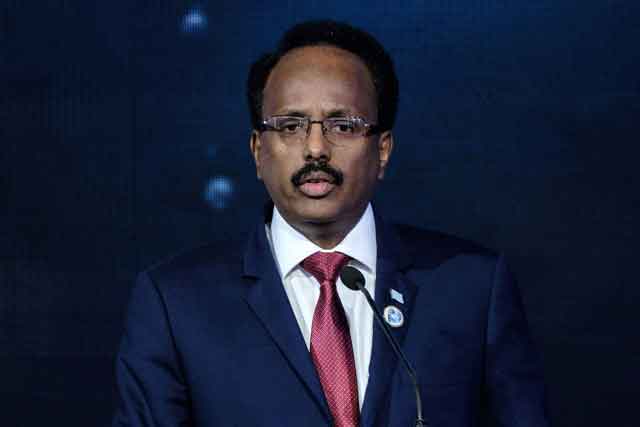
Kampala, Uganda | XINHUA | Somali President Mohamed Farmajo and five regional leaders wrapped up a five-day meeting in Mogadishu on Thursday by agreeing on a revised election model for the 2020/21 polls which is crucial for the country’s stability.
Farmajo who hosted leaders of the regional states of Galmudug, SouthWest State, Hirshabelle, Puntland and Jubaland including Mogadishu mayor agreed to make a number of changes to the three previous election agreements which were reached in Dhusamareb, the capital of Galmudug.
A joint statement issued by President’s Farmajo’s office said both the government and regional states will appoint federal and regional-level electoral commissions to manage the election.
The Somali leaders who have been meeting in Mogadishu since Sunday also agreed to revise the Electoral Constituency Caucuses model where each caucus will be consisting of 101 electoral delegates who will vote for a seat in parliament, down from 301 which was agreed in the previous meetings.
“The leaders agreed that the number of delegates voting for each member shall be 101 delegates representing the community sharing the seat,” they said.
They said the agreement which was reached at the end of the fourth round of talks must be approved by the Lower House of Parliament.
The leaders said the selection of delegates will be done in collaboration with traditional elders, civil society and the State Government and that the election will take place in two places, down from four as had been previously agreed.
The leaders also said there will be no political parties taking place in the elections, noting that the country’s election plan will begin on Nov. 1 and that both national and regional governments would provide security during the elections.
The leaders also agreed to retain 30 percent quota for women.
Analysts say holding the 2020 universal vote is considered critical for the sake of entrenching the federal system of governance, which is required to appease communities and regions claiming systematic exclusion and marginalization for decades.
The Horn of Africa nation last held one-person, one-vote elections in March 1969 when the government was overthrown in a military coup.
Parliamentary and presidential elections took place in late 2016 and early 2017 through a system of indirect suffrage.
*********
XINHUA
 The Independent Uganda: You get the Truth we Pay the Price
The Independent Uganda: You get the Truth we Pay the Price





